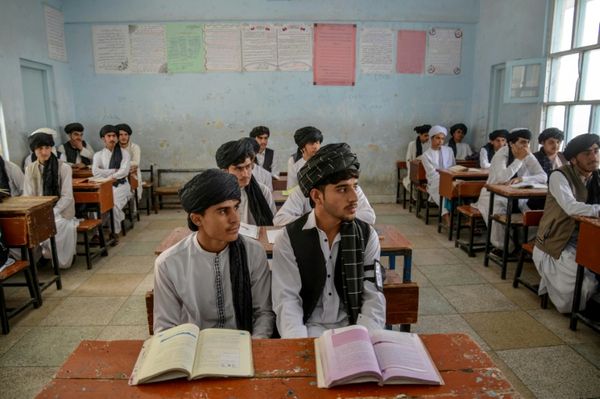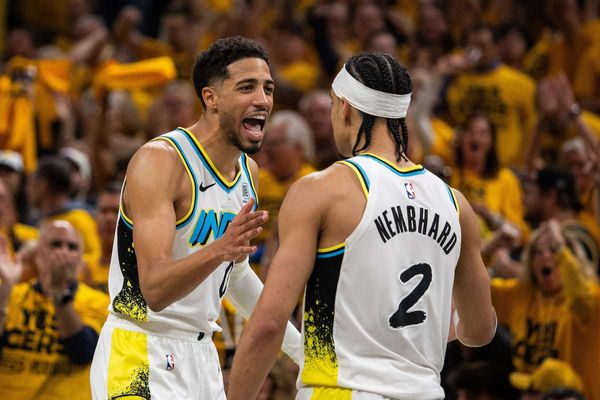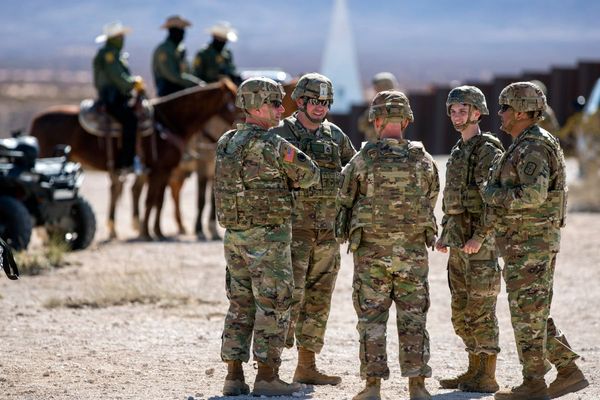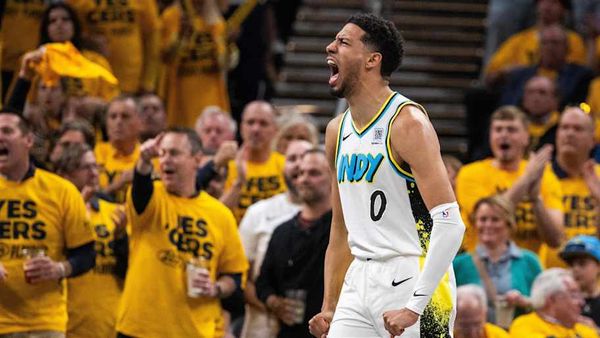Almost every champion grapples with self-doubt. Even the most confident athletes may wonder if they're good enough to rise to the top. That includes Anthony Robles.
For Robles, the road to becoming a champ meant overcoming the prevailing doubt that he could win. That's because Robles, who won the national college wrestling championship in 2011, was born with one leg.
Robles began wrestling at 14 and faced setbacks from the start. But he persevered by confronting what he calls "the doubters." "I would tell myself, 'If I quit now, I'm proving them right,'" Robles said.
This motivational strategy worked for awhile. But it took a toll on Robles. "After I got more success, I kept thinking, 'I have to keep winning to prove them wrong.' The pressure kept growing and I worried more and more about winning."
Anthony Robles: Deal With Mounting Pressure
Robles, 36, ultimately figured out how to relieve the psychological pressure. But fate played a role as well.
After his junior year at Arizona State University, Robles was an elite wrestler. He had won a national championship as a high school senior and earned All-American honors in college.
But after finishing seventh in his weight class in the NCAA tournament, he was crushed. Over the summer, a manila envelope arrived in the mail that reset his attitude.
"It was filled with around 40 letters from third grade students in Atlanta," he recalled. "They had read about me in a wrestling magazine. They were opening up and sharing their challenges and goals with me. I got teary-eyed."
Reading these heartfelt, handwritten letters, Robles had an epiphany. Instead of feeling constant pressure to prove people wrong and win every match, he took a different tack.
"My takeaway was to give my best effort, move on and not worry about the end result," he said.
His new approach freed him to compete without the added pressure. And it worked: He trounced the competition in his final year of eligibility and won the national championship by beating the reigning NCAA champ.
Harness Strengths To Win Like Robles
A new movie, "Unstoppable," tells Robles' story. Jharrel Jerome plays Robles and Jennifer Lopez plays his mother, Judy.
"My mom never allowed me to use my leg as an excuse," said Robles, now a motivational speaker and high school wrestling coach in Chandler, Ariz. "It was always, 'What are my strengths?' and 'What are my opportunities?'"
From a young age, Robles understood the importance of focusing on his strengths. Coaches helped him capitalize on what differentiated him from his peers.
For example, his reliance on crutches led him to develop superior grip strength. This gave him an advantage when wrestling. He also treated every practice as a laboratory to learn.
"I'd go to the best guy in the room and challenge him," he said. "We'd go through our techniques. I could see how I matched up — what techniques they were using on me and what techniques I could use on them."
Take Detailed Notes
A diligent note-taker, Robles jotted down what went right in practice, what went wrong and steps to improve.
"In college, I lived in my head a lot," he said. "Writing things down helped me take lessons away from each day, isolate my feelings and have a list to follow the next day. It was a quick roadmap for me."
His commitment to continual learning paid off. Whenever he lost a match, he sought to identify how he could improve and vowed, "Next time, I won't lose due to that same thing."
Robles impressed his coaches with his determination to learn, grow and excel. He would figure out how to make adjustments to get better results.
"Anthony is the most inspirational person I've ever met," said Brian Stith, one of his coaches at Arizona State University and a two-time All-American during his ASU wrestling career. "Seeing him practice, train and compete, he had every excuse not to do certain things or sit things out or be protective of himself. He wanted none of that."
Stith marvels at Robles' poise and maturity. "I don't think he was ever a teenager," Stith said with a laugh. "He was very quiet and serious" in his first few years at ASU.
Robles: Set Lofty Goal From The Start
From a young age, Robles learned to reframe wrestling losses as teachable moments. As much as he hated to lose, he also knew he could gain something from each defeat.
"My high school coach, Bobby Williams, told me to highlight little victories even when I lost," he said. "Instead of being angry at losing, I would track my progress along the way."
For instance, he might reflect on a loss by noting that his bottom wrestling position was improving. This encouraged him to keep advancing toward his goals. "The goals we chase, we never reach them in the time frame we expect," Robles said.
When he arrived at Arizona State as a freshman and made the wrestling team despite his walk-on status, he remembers being asked, "What are you excited about being on the team?"
"I'm excited to be here to become a national champion," he declared.
"There was doubt along the way but I felt I could reach that goal," he said. Robles chose to attend ASU — and decline a full scholarship to Drexel University — to stay close to his mother. "His loyalty to me and his siblings led him to give up that scholarship," said Judy Robles, now an associate athletic director at ASU.
Confront Challenges Head On With 'Let 'Em Come' Mantra
Robles always knew he was different. Early on, he'd hear how others reacted to him. "Growing up, I noticed how people stared at me in the grocery store," he said.
"He'd get hurt but chose not to listen to voices that he shouldn't," Judy said. "The negativity doesn't bring him down. People have always underestimated him."
In fact, she's the one who tends to confront people who make snide remarks about her son.
"We've been in situations where you can hear the whispers about him having one leg," she said. "He doesn't react outwardly. His concern is that I'm hurt as his mom, that I'll get upset. He's more worried about me and that I'm OK."
Know Your Opponent
Soon after he started wrestling at 14, Robles knew he needed to focus on each opponent — and ignore distractions such as an occasional heckler in the crowd. His mental discipline became an asset as his stature grew.
"He was never rattled," Stith said. "It's hard to keep your head and control your nerves (in big tournaments). The whole time, Anthony was stoic and calm in a loud and chaotic environment."
Stith would strategize with Robles on whether to adopt a conservative approach to beat opponents. He might say, "Anthony, maybe we should try this safer approach."
"He'd reply, 'No, we're going to do it the hard way, right in the face of danger,'" Stith recalled. "He's fixated on tackling the toughest things head on."
Robles often liked to say, "Let 'em come," Stith says. As a competitor, Robles welcomed the chance to perform at his best against the best. And he ended up a champion.
Anthony Robles' Keys:
- Born with one leg, Anthony Robles won the 2011 NCAA wrestling national championship.
- Overcame: Competing and winning as a high school and college wrestler with one leg.
- Lesson: "My mom never allowed me to use my leg as an excuse. It was always, 'What are my strengths?' and 'What are my opportunities?'"







